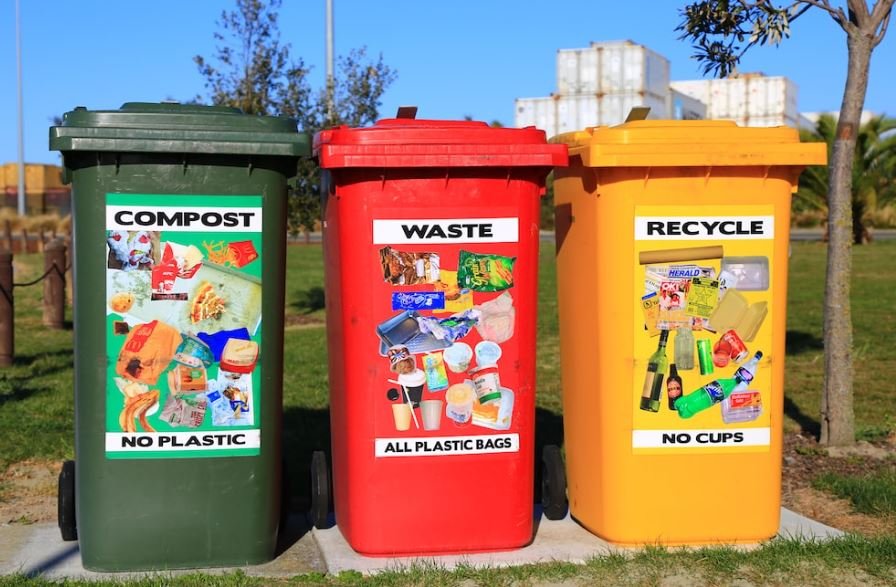Lifestyle
Eco-friendly Living: Tips for a Sustainable Lifestyle

Importance of eco-friendly living
As people around the world become more aware of the problems we have with the environment, eco-friendly living has become an important part of keeping our planet alive. Choosing a sustainable way of life is good for the world, but it can also make us healthier, save us money, and make the future better for everyone.
Benefits of a sustainable lifestyle
A sustainable way of life can make the earth healthier, communities stronger, and your health better. By making good decisions, we can help our world and the people who will live here after us.
Reducing Energy Consumption

Energy-efficient appliances
Using appliances that use less energy is one of the best ways to use less energy. These appliances use less energy, so your electricity bills will be lower, and less greenhouse gas will be released into the air. Look for products with the ENERGY STAR label, which means they meet strict standards set by the U.S. Environmental Protection Agency for how well they use energy.
Smart thermostats
Smart thermostats learn your habits and adjust temperatures accordingly to save energy. These devices can be controlled remotely, allowing you to adjust settings when you’re not at home, preventing energy waste.
Insulation and weatherstripping
Proper insulation and weatherstripping in your home can reduce energy consumption by keeping it warm in the winter and cool in the summer. This can significantly lower your heating and cooling costs while minimizing your carbon footprint.
Green Transportation

Public transportation
Using public transportation reduces the number of cars on the road, leading to decreased air pollution and traffic congestion. It also saves you money on gas, maintenance, and parking fees.
Biking and walking
Biking and walking are healthy, eco-friendly alternatives to driving. They produce zero emissions, improve air quality, and provide excellent exercise opportunities.
Electric and hybrid vehicles
If you must drive, consider an electric or hybrid vehicle. These cars produce fewer emissions than their gas-powered counterparts, reducing air pollution and dependence on fossil fuels.
Waste Reduction

Recycling and composting
Recycling and composting are essential for reducing waste and conserving natural resources. Separate your recyclables and start a compost bin for food scraps and yard waste to minimize landfill contributions.
Reusable products
Using reusable products, such as water bottles, shopping bags, and food storage containers, can significantly reduce waste. By replacing single-use items with reusable alternatives, you can save money and minimize your environmental impact.
Reducing single-use plastics
Single-use plastics are a significant source of pollution. Opt for alternatives like glass or stainless steel, and avoid disposable plastic items like straws, cutlery, and bags whenever possible.
Eco-friendly Diet

Plant-based diet
Adopting a plant-based diet can greatly reduce your carbon footprint. Producing plant-based foods typically requires less water, land, and energy than animal agriculture, resulting in lower greenhouse gas emissions.
Organic and locally sourced foods
Choosing organic and locally-sourced foods supports sustainable farming practices and reduces the environmental impact of transportation. Buying from local farmers’ markets also helps strengthen local economies and encourages community connections.
Reducing food waste
Reducing food waste is vital for a sustainable lifestyle. Plan meals, store food properly, and utilize leftovers to minimize waste. You can also donate excess food to local food banks or share with neighbors.
Sustainable Shopping

Supporting ethical companies
When shopping, choose to support companies that prioritize environmental and social responsibility. Look for certifications like Fair Trade, B Corp, and Rainforest Alliance to ensure the products you buy align with your values.
Minimalist lifestyle
Embracing a minimalist lifestyle means consuming less and focusing on what truly matters. By reducing clutter and unnecessary possessions, you’ll save resources, money, and space while simplifying your life.
Second-hand shopping
Buying second-hand items, such as clothing and furniture, reduces waste and conserves resources. Thrift stores, consignment shops, and online marketplaces are excellent sources for quality pre-owned goods.
Green Gardening

Native plants and pollinators
Planting native species in your garden supports local ecosystems and attracts pollinators like bees and butterflies. Native plants are adapted to the local climate and require less water and maintenance than non-native species.
Organic gardening
Organic gardening avoids synthetic fertilizers and pesticides, promoting healthier soil and ecosystems. Use compost, natural pest control methods, and organic fertilizers to maintain a thriving, eco-friendly garden.
Rainwater harvesting
Collecting rainwater in barrels or cisterns for use in your garden conserves water and reduces stormwater runoff. This sustainable practice helps save money on your water bill while benefiting the environment.
Conclusion
Not only is living in a way that is good for the environment good for the environment, but it also makes our lives better and makes us feel more responsible for our world. By doing these things that are good for the environment, we can make the world a better place and pave the way for a better future.
FAQs
-
What is the most significant change I can make to live more eco-friendly?
Reducing your energy consumption and choosing greener transportation options can have a significant impact on your carbon footprint.
-
Is it expensive to adopt an eco-friendly lifestyle?
While some sustainable products might have a higher upfront cost, the long-term savings from reduced energy and resource consumption often outweigh the initial expense.
-
How can I encourage others to adopt a sustainable lifestyle?
Lead by example and share your experiences, challenges, and successes with friends and family. Engaging in conversations and supporting eco-friendly initiatives in your community can inspire others.
-
Is a zero-waste lifestyle possible?
While achieving a completely zero-waste lifestyle may be challenging, making conscious choices and reducing waste can significantly decrease your environmental impact.
-
*What are some simple ways to start living more eco-friendly?*
Begin by conserving energy, using reusable products, reducing waste, and considering greener transportation options. Small changes can add up to make a significant difference in your environmental impact.
Read more: Lifestyle Changes You Can Make Now for a Better Financial Future





















